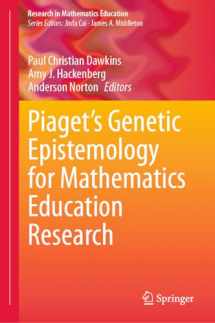
Piaget’s Genetic Epistemology for Mathematics Education Research (Research in Mathematics Education)
Book details
Summary
Description
The book provides an entry point for graduate students and other scholars interested in using the constructs of Piaget's genetic epistemology in mathematics education research. Constructs comprising genetic epistemology form the basis for some of the most well-developed theoretical frameworks available for characterizing learning, particularly in mathematics. The depth and complexity of Piaget's work can make it challenging to find adequate entry points for learners, not least because it requires a reorientation regarding the nature of mathematical knowledge itself. This volume gathers leading scholars to help address that challenge. The main section of the book presents key Piagetian constructs for mathematics education research such as schemes and operations, figurative and operative thought, images and meanings, and decentering. The chapters that discuss these constructs include examples from research and address how these constructs can be used in research. There are two chapters on various types of reflective abstraction, because this construct is Piaget's primary tool for characterizing the advancement of knowledge. The later sections of the book contain commentaries reflecting on the contributions of the body of theory developed in the first section. They connect genetic epistemology to current research domains such as equity and the latest in educational psychology. Finally, the book closes with short chapters portraying how scholars are using these tools in specific arenas of mathematics education research, including in special education, early childhood education, and statistics education.


We would LOVE it if you could help us and other readers by reviewing the book
Book review



